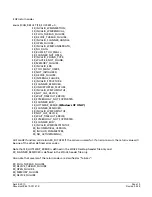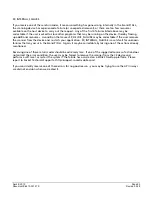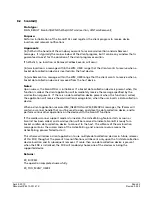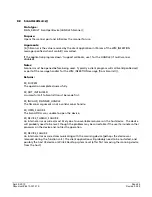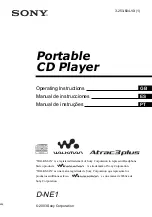
temporarily ignore all scanned data, if desired, by supplying NULL as the hWnd argument to
ScanRequestDataEvents().
When your application closes down, it should call ScanDeinit(). This function will close all open scanning
devices, making it unnecessary for you to call ScanCloseDevice() when you shut down.
All ScanAPI function calls return SR_SUCCESS if the function succeeds. If a failure occurs, the error returned
by the ScanAPI library can be translated to text using the ScanErrToText() function. This function translates
the error code into fairly technical jargon and, while this may be useful during software development, the
text may not be suitable for display in an end-user application. Since the error messages are located within a
string resource that is bound to the ScanAPI DLL file, you may change the wording of these error messages,
or translate the messages to different languages if desired, using a resource editing tool.
The Samples directory of the SDK contains several sample programs that can be found in the following
subdirectories:
5.1
P
REVIEW
DLL
This project demonstrates how to create a SocketScan Preview DLL.
5.2
RFID
D
EMO
This project demonstrates the usage of the RFID-specific API calls.
5.3
S
CAN
A
PI
T
ESTER
This project demonstrates the usage of the ScanAPI.
5.4
T
RIGGER
S
AMPLE
This application demonstrates how to send a trigger message directly to the ScanAPI library.
5.5
CS
HARP
S
AMPLE
A simple scanning application written using C#.
5.6
C
OMBO
C
ARD
CS
HARP
S
AMPLE
A simple scanning application written using C# that demonstrates the multiple scanner support of
ScanAPI when using the CF RFID Reader-Scan Card 6M/6P.
5.7
RFID
VB
This Visual Basic based application demonstrates the ScanAPI interfaces to the CF RFID Reader-Scan
Card 6M/6P.
5.8
VB
S
AMPLE
This application demonstrates ScanAPI access from Visual Basic.
April 8, 2010
Page 15
Document#: 6410-00147 K
Revision 2.28



















